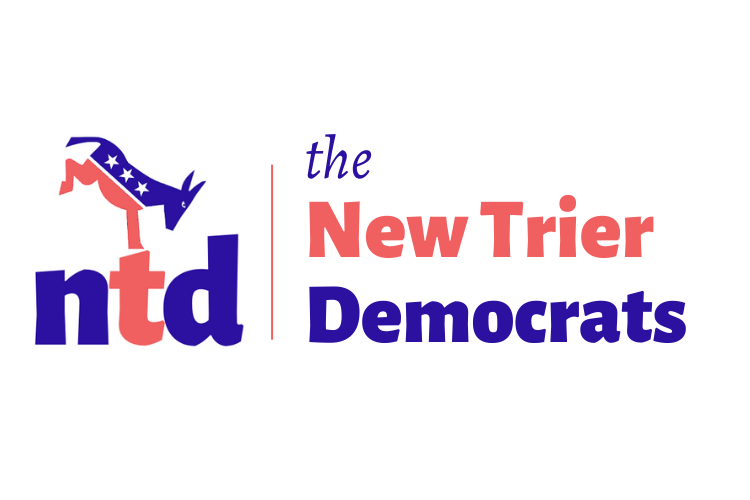AAPI Awareness Month Special Interview
by Jennifer Lind, NTD Board Member, interviewing Sora Seals, NTHS alumna
On May 1, 2009, President Obama signed Proclamation 8369, recognizing the month of May as Asian American and Pacific Islander Heritage Month. After decades of advocacy, May is designated a time to bring awareness to and celebrate the achievements and contributions of Americans of Asian and Pacific heritage with community festivals, government-sponsored events and educational activities for students of all ages.
The federal legislation to annually designate May as Asian American Pacific Islander American Heritage Month referenced two key dates: May 7 and May 10. May 7, 1843, marks the arrival of the first Japanese immigrants to the United States. And May 10, 1869, or Golden Spike Day, recognizes the completion of the first transcontinental railroad in the U.S., which had significant contributions from Chinese workers.
For local perspective, we reached out to Wilmette resident and recent University of Illinois Urbana Champagne graduate and NTHS '18 grad Sora Seals for her perspective on growing up in the 9th Congressional district and the importance of monthly heritage awareness programs. Interview questions submitted by NTD executive board member Jennifer Lind.
JL: In general, how do you look back on growing up in Wilmette?
SS: In general, I enjoyed my experience. I grew up in a nice home in a safe neighborhood, received an exceptional K-12 education, and had plenty of opportunities to participate in tons of extracurriculars.
JL: How would you assess the education you received at NTHS and its feeder schools?
SS: The quality of education I received was an immense privilege and I am even more aware of that fact now after graduating from UIUC. I had courses available in high school that many people my age in other public schools didn’t know existed until college. I had access to top-notch facilities and technology. The one place there was room for improvement was diversity in staff, particularly in the English and History departments. There was a certain lack of perspective that I felt could have benefitted NTHS students when discussing topics of American history.
JL: What are some of the highlights of growing up in this area?
SS: Wilmette’s city planning and park district are some of the best. The urban-suburb feel of the village separates Wilmette from other suburbs because of our closely packed homes and public transport. The park district supplied endless fun for kids in the area with access to places like beaches, centennial, and the Rec center. As a kid, summer camp was awesome! I went from being a camper to a counselor and enjoyed every second of it.
JL: Do you consider Asian Americans or mixed-race families to have a different experience living in the New Trier district? If so, how?
SS: Yes. Unfortunately the lack of diversity in the area makes for a semi-lonely upbringing. Asians make up quite a small percentage of NT’s student population, and mixed Asians even less so. That lack of visibility often makes it hard to find a sense of community that other racial/ethnic groups may be able to benefit from. Luckily I grew up going to school with one other student of my same background (Black and Asian), and though we were quite different personality wise, we were able to offer each other that bond that only comes from relating over race.
JL: Is your Asian heritage an important part of your identity? Part of your connection to Wilmette?
SS: Absolutely. My race is both a challenge and one of my favorite things about myself. Growing up being able to experience both Japanese and Black culture gave me a very unique upbringing that I appreciate every day. It’s tough when you don’t get to share those cultural moments with anyone but your siblings, but I wouldn’t trade it for a different life. Being Japanese also provided a lot of interesting ties to Wilmette. I attended a Japanese school in Arlington Heights called Futabakai until I was 12 years old. Along with other Japanese K - 8 students in the Chicagoland area, I went every Saturday to receive a typical Japanese education. Japanese kids from Wilmette, Evanston, and the surrounding neighborhoods would take a bus from WJHS to Futabakai. This bus group and our parents became very close and formed a lasting community; I made some of my closest Japanese friends at that WJHS bus stop!
JL: How does life on campus at UIUC feel different from life and school back home?
SS: Being back in Wilmette after living in Champaign is quite odd. Although I consider my high school friend group to be quite diverse in terms of income, it’s abundantly clear that we had a better upbringing than some of the people at UIUC. My particular area of Wilmette tends to have more racial and economic diversity, but even that is nothing compared to other areas of the city.
JL: Do you have any advice for white Americans to better understand and support the interests of Asian Americans in our community?
SS: You may relate to the phrase “I was taught by my parents to treat everyone equally, regardless of their race, gender, income, or sexuality.” Although that sentiment is sweet, I take issue with the word “taught.” You were likely told this line once or twice and tried to apply that to your daily life, but that sentence does not constitute an education. You likely were not taught about why the North Shore is so overwhelmingly rich and white and why those two are connected. You were not taught that the history you learned in elementary school was white washed. You were not raised in a community with BIPOC. You were likely told not to be racist while simultaneously existing in a setting where you benefit from systemic racism. If you’d like to better understand the Asian-American experience, start by educating yourself. Not by going to your nearest person of color and asking them to recite a history book, but take the time to research on your own from people who volunteer their knowledge. Reading this passage is a great start! There are plenty of YouTube videos, documentaries, and books that are dedicated to education on topics of the Asian experience. Here are some topics and books I recommend looking into:
Orientalism, by Edward Said. 1978.
Orientalism and War, explores the links between racism and U.S. wars. Editors Barkawi and Stanki, 2012.
Concentration Camps on the Home Front: Japanese Americans in the House of Jim Crow, by John Howard, 2008.
The 1982 murder of Vincent Chin in Detroit, Michigan.
The Model Minority Myth as discussed at the Pacific-Asia Museum.
Life in the U.S. for Americans of Middle Eastern and South Asian descent after 9/11.
Consider how Sinophobia has increased in the era of Covid.

